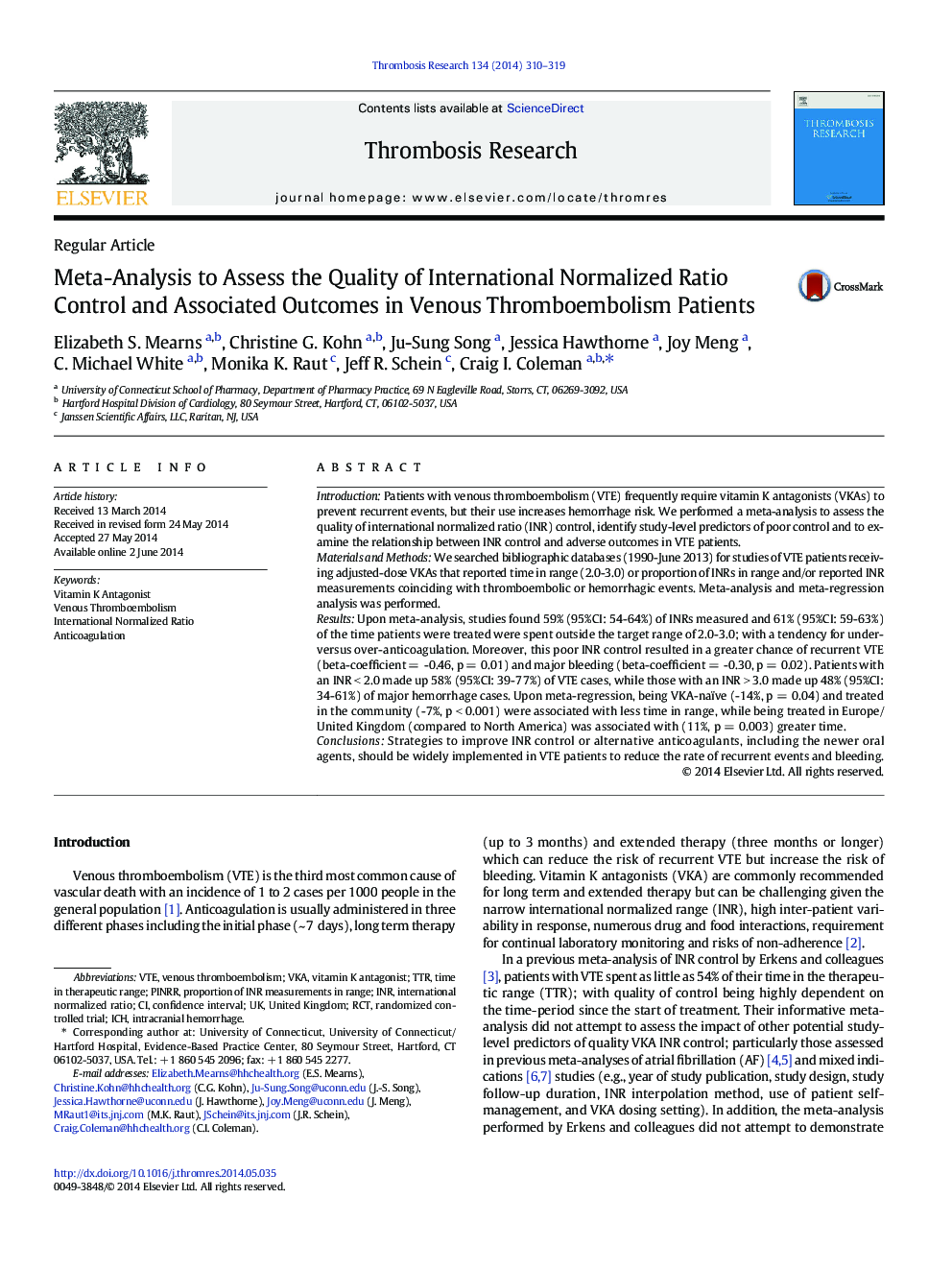| کد مقاله | کد نشریه | سال انتشار | مقاله انگلیسی | نسخه تمام متن |
|---|---|---|---|---|
| 6002303 | 1182967 | 2014 | 10 صفحه PDF | دانلود رایگان |
IntroductionPatients with venous thromboembolism (VTE) frequently require vitamin K antagonists (VKAs) to prevent recurrent events, but their use increases hemorrhage risk. We performed a meta-analysis to assess the quality of international normalized ratio (INR) control, identify study-level predictors of poor control and to examine the relationship between INR control and adverse outcomes in VTE patients.Materials and MethodsWe searched bibliographic databases (1990-June 2013) for studies of VTE patients receiving adjusted-dose VKAs that reported time in range (2.0-3.0) or proportion of INRs in range and/or reported INR measurements coinciding with thromboembolic or hemorrhagic events. Meta-analysis and meta-regression analysis was performed.ResultsUpon meta-analysis, studies found 59% (95%CI: 54-64%) of INRs measured and 61% (95%CI: 59-63%) of the time patients were treated were spent outside the target range of 2.0-3.0; with a tendency for under- versus over-anticoagulation. Moreover, this poor INR control resulted in a greater chance of recurrent VTE (beta-coefficient = -0.46, p = 0.01) and major bleeding (beta-coefficient = -0.30, p = 0.02). Patients with an INR < 2.0 made up 58% (95%CI: 39-77%) of VTE cases, while those with an INR > 3.0 made up 48% (95%CI: 34-61%) of major hemorrhage cases. Upon meta-regression, being VKA-naïve (-14%, p = 0.04) and treated in the community (-7%, p < 0.001) were associated with less time in range, while being treated in Europe/United Kingdom (compared to North America) was associated with (11%, p = 0.003) greater time.ConclusionsStrategies to improve INR control or alternative anticoagulants, including the newer oral agents, should be widely implemented in VTE patients to reduce the rate of recurrent events and bleeding.
Journal: Thrombosis Research - Volume 134, Issue 2, August 2014, Pages 310-319
